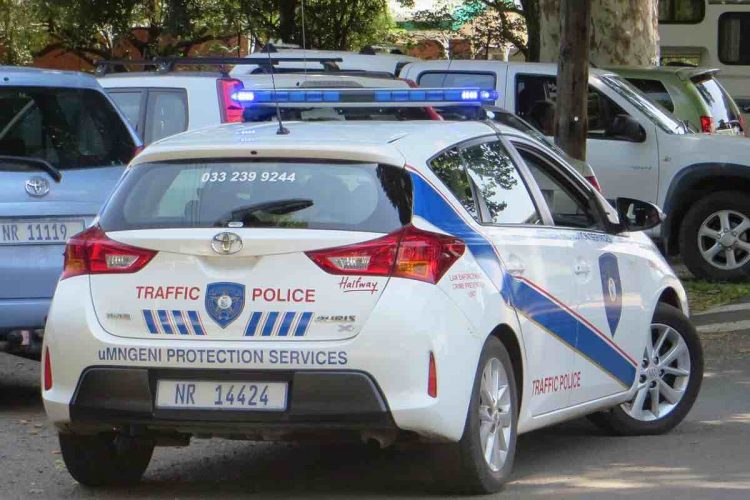The Administrative Adjudication of Road Traffic Offences (Aarto) Act is scheduled to come into effect on Thursday 1 July 2021, with a newly introduced demerit system. In this article, we will go into great detail in explaining how it works.
According to the Automobile Association (AA), too many questions remain unanswered on the functions and implications of the Act, and there is growing suspicion that the Road Traffic Infringement Agency (RTIA) is far from ready to implement these new changes.
RTIA spokesperson Monde Mkalipi, however, told MyBroadBand that contrary to the AA’s concerns, things are very much on-the-go for the five-phased plan to be rolled out nationally at the start of next month.
Before the demerit system can be fully introduced, a number of loose ends need to be tied and that, Mkalipi revealed, is going to be the highest priority of Phase One, which launches on 1 July 2021.
This is what the first phase of the roll out will entail:
- ensuring the RTIA’s IT infrastructure is sufficient and responsive to the National Traffic Information System (NATIS);
- setting up RTIA offices at every municipality;
- hiring staff with designated roles and responsibilities to ensure seamless administrative processes;
- training drivers license issuing authorities on the ins-and-outs of the demerit system; and
- covering all basis of scenarios that are likely to occur from drivers challenging the system.
This phase, as well as others to come, Mkalipi explained, is expected to run for three months. Therefore, as things stand, the department of transport and the RTIA can’t confirm when exactly the demerit system will be fully implemented nationally.
What is the AARTO Act?
In the near future, South Africa’s traffic do’s and dont’s will be governed by the AARTO Act which is essentially a demerit system that seeks to introduce harsher punitive measures on infringements committed by motorists.
Not only will motorists who break the rules be faced with hefty fines, but they will lose ‘points’ on their drivers licenses.
Demerit system: Here’s how it works
As things stand, Transport Minister Fikile Mbalula has not officially announced the national rollout of the demerit system. When this new set of road rules does come into effect, this is what’s in line for drivers who are fined for traffic violations:
If motorists are fined for any of the 2 600+ offences listed in the AARTO Act, they have five options:
- Pay the fine within 32 days (this will automatically allow you a 50% discount on the total fine amount)
- File for a dispute on the fine at the RTIA
- Pay your fine in instalments if it is above R750 (up to six months)
- Fully reject the fine and contest the matter in court
- Forward the fine to the person who was driving at the time it was issued.
Five common traffic violations and their demerit points
The RTIA has stressed that the system will be as fair as possible and accommodate any and all challenges from motorists.
While there are more than 2 600 traffic violations recognised by the AARTO Act, these five are the most common. Here is the total number of points that will likely be deducted from your drivers license if you commit any of these five common violations:
Driving above the speed limit
The penalty for this offence varies. if motorists are caught speeding at 20km/hr above the maximum threshold allowed on highways (120km/hr), then a R250 fine is payable, with as many as two points deducted from the drivers licence.
In worst case scenarios, where the driver speeds at 40km/hr above the allowed limit, on highways and inner city roads, a penalty may be determined by a court and if found guilty, six points will be deducted from the motorist’s licence.
Skipping a red light
Two points can be deducted from a motorist’s licence if they are caught skipping a red traffic light. Depending on the severity of the offence, motorists may be fined R750.
Driving under the influence
Not only does DUI carry the possibility of a jail term, drivers found guilty by a court could have six points deducted from their licence.
Driving without a licence
Motorists who, for whatever reason, fail to present a valid South African drivers licence when stopped by a traffic official will have a lot to answer for in court.
Depending on the outcome of this court inquest, guilty motorists may see six points deducted from their licence.
Failing to yield to at a pedestrian crossing
This common misdemeanour carries a one-point deduction, if caught. Depending on the severity of the offence, motorists can face fines of up to R500.
What will it take to get your drivers license suspended?
Paying the fine does not exempt the driver from having points deducted from their licence. Under the current prescripts of the AARTO Act, drivers are allowed to accumulate up to 15 points on their licence before it is suspended for a period that will be determined by the RTIA.
If a driver’s licence gets suspended twice, it will be wholly cancelled. At this time, it is unclear what processes are in place for motorists when the latter becomes reality.
“Aarto is coming here to protect the infringer. Aarto is coming in to present your case if you have been unfairly treated,” Mkalipi said.






